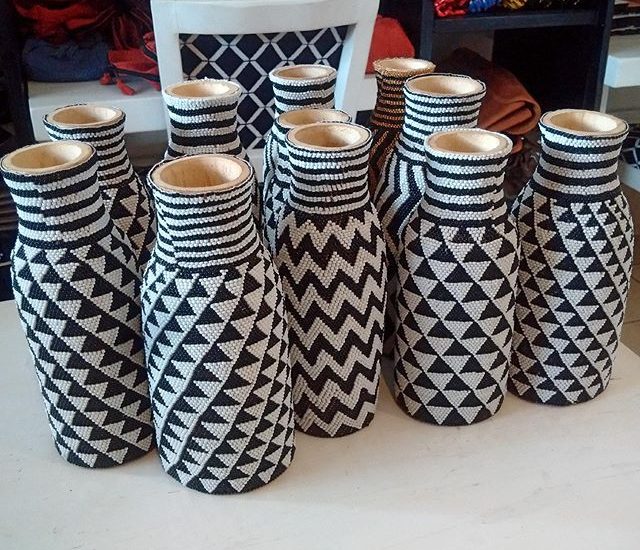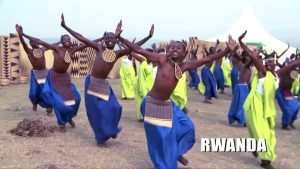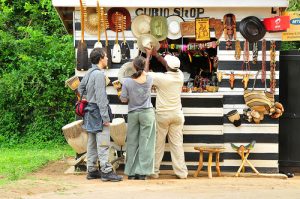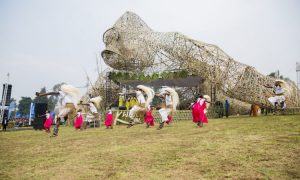- September 9, 2020
- Posted by: Administrator2
- Categories: African safari destinations, African Tours, Blog, Rwanda News, Rwanda Safaris

Everything that you must know about Culture in Rwanda.
Dive into Culture in Rwanda on your gorilla trekking safari. Rwanda is located in the central – Eastern region of Africa. It is a landlocked country bordering the Democratic Republic of Congo in the west, Uganda in the north, Tanzania in the east, and Burundi in the west. The country has a strong cultural history informed by great cultural beliefs. Rwanda is split into three tribal groups which are the Hutu (dominant), Tutsi, and Twa people. Rwanda’s traditional cultural heritage lies in the people. Generally, Rwanda is one of the best cultural destinations in Africa.
A few outside cultures have managed to infiltrate Rwanda’s culture. Irrespective of Rwanda’s sad history associated with the bloodshed during the 1994 Rwanda Genocide. The existing Rwandese have managed to forge unity and live in harmony over the past decades. Present Rwanda is one of those countries in the world whereby all visitors from all corners of the world are offered a warm welcome. Gorilla trekking safaris in Volcanoes national park can be combined with a visit to the cultural villages.
The History of Culture in Rwanda
The history of Rwanda can be traced all the way from the 13th century when the Tutsi people from the south invaded the Hutu and the Batwa who are the ancient occupants of Rwanda. Unity among these ethnic groups was forged in the 19th century by King Kigeri Rwabuguri and Rwanda was formed. This, however, lasted until 1890 when Rwanda was annexed by the Germans as their East African colonial territory.
Later on, ethnic conflicts over who should dominate the other became a daily song in Rwanda. The Tutsi minority ruled over the Hutu majority who contributed up to 84% of the country’s total population. The strife was backed by the Belgian government until 1994 when the revolution turned bloody. At this stage, thousands of Rwandese lost their lives in this inter-tribal war. When you visit Rwanda do not miss passing by the famous Rwanda Genocide Memorial Center. Here you will get an opportunity of seeing the names and some of the remains of those who succumbed to this bloody 1994 Rwanda Genocide.
Today, Rwanda has managed to maintain peace under the leadership of His Excellence Paul Kagame. Rwanda is a legal of the United Nations Organization (UNO), The East African Community (EAC), The African Union (AU), and many other international bodies whose aim is regional peace, economic development, and respect for human rights.
Meet the gorillas on a Rwanda Cultural tour
Rwanda is known as the land of a thousand hills and Kigali is currently the cleanest city in Africa. Other than the diverse and hospitable culture of Rwanda, the country’s tourism sector has gained fame from harboring the endangered mountain gorillas, the big 5 animals (lion, leopard, elephant, rhinoceros, and Cape buffalo), golden monkeys, to mention but the few. Book a Rwanda wildlife and Cultural safari with Love Uganda Safari Tours Ltd and dive into the real African Cultural encounters.
Let us dig into the culture in Rwanda.
Which languages are spoken in Rwanda?
The common languages used in Rwanda are English, French, and Kinyarwanda. Rwandese are mostly Christians mixed with traditional believers. Rwanda is a diverse country right from the culture to its meaning by the lifestyle, tradition, beliefs, cuisine, music and dance, arts and crafts, clothing, and rituals that significantly distinguish the Rwandan people from the rest of the world population.
To begin with, in Rwanda, the Hutu and the Twa are originally hunters and farmers, and Tutsi are pastoralists with large herds of cattle and these people mainly feed on dairy products like milk. Some of these economic activities have changed and crossed from one ethnic group to the other as a result of modernity and civilization. Do not get surprised when you see a Hutu family specializing in cattle keeping or a Tutsi family cultivating the land.
Rwanda is one of those countries in the world that have developed tremendously over the past decades. This development has been a product of partnerships with developed countries and embracing new technology. For instance, the English Football club Arsenal and French League one Paris Saint Germaine (PSG) are official partners of Rwanda’s tourism industry. You must have heard of the phrase “Visit Rwanda” or the Hashtag #VisitRwanda over social media and in the sports world. In May 2022, four famous footballers and PSG players Sergio Ramos, Thilo Kehrer, Keylor Navas, and Julian Draxler visited Rwanda under the Visit Rwanda campaign. The quadruple visited Akagera national park, Volcanoes national park, and then the Gisozi memorial site.
Rwanda’s famous cuisines and beverages
The staple food is bananas plantain, pulse, sweet potatoes, beans, and cassava. The national foods is, ‘Ugali’ a maize paste mixed with water, ‘Isombe ‘ cassava leaves paste with water, ‘Ibihaza’ a pumpkin paste with beans, ikinyiga (ground nut paste), and “Umutsima w’uburo” a millet paste. Currently, the Rwandese are evolving and introducing other cuisines from other countries, for example, Indian, Chinese, Italian, and African cuisines. For beverages, the nationals mostly feed on milk, fruit juice, and beer.
Commercial beers drunk in Rwanda include mutzig, Amstel, and primus. Urwagwa is a traditional brew made from the fermented juice of bananas roasted with sorghum flour. Ubuki is made from fermented honey and made with 12% alcohol. Ikigage is also an alcoholic beverage made from sorghum and it is believed to have medicinal powers.
Music and dance in Rwanda

Umuganura dance
Traditionally all the Rwandan dances are associated with societal meaning as each dance was performed for a special occasion in the community. For instance, during the first harvest time in the ancient days, the local people performed the Umuganura dance in respect and praise of the almighty and in celebration of the harvest they made in the year. At this dance, they would also bless the seeds that would be planted the next season. At Umuganura (harvest dance) the locals would gather and share the forest harvest and farm produce, they also would drink and make a local brew and share fruits. It was a moment of joy as harvesting was a sign of abundance in Rwanda. Immerse yourself in the cultural wear of Rwandese on your Rwanda cultural tour.
kurambagiza dance
Then the unmarried women performed the kurambagiza dance, where they would portray their singleness until their potential husbands noticed and told. The kurambagiza (dance of fiancés) also featured birds’ movements such as the grey crested cranes mating dance which is a very mesmerizing dance to watch.
Umushangiriro dance
The Umushangiriro dance is performed to show the gracefulness, godliness, pride, peacefulness, radiance, kindness, and beauty of Rwandan women. This is mainly performed by women as they make gentle and slow radiant movements with their arms and body.
Intore dance
And lastly, the dance of warriors (Intore) dance. This is mainly performed by men as they are seen as leaders and warriors, which serves the meaning of (Intore). Men of great morals and physical abilities are chosen to perform this dance. There are tales told behind the dance for this dance was used to show capability during the battlefields. The holding of spears during this traditional dance is a sign of dominance, bravery, and the willingness to confront whichever enemy comes to Rwanda. Cultural dances in Rwanda are a rewarding experience worth your time.
All these dances are performed live in tourist cultural communities and sites such as the Ibyi’wacu village. Traditional dance is one of the products that make up Rwanda’s cultural tour packages which one should not miss on an African cultural safari.
Art, crafts and Culture in Rwanda

Besides the delicious cuisine and mesmerizing traditional dances, Rwanda culture has also revolved around the making of unique arts and crafts that are originally connected to the people. Rwanda has exhibited its arts and crafts through woodcraft, papercraft, pottery, grass craft, textiles, and weaving. Rwanda has been mostly known for its famous Ageseke baskets the “peace baskets”. These are used to store food and were used as gifts for any kind of ceremony. Also, the famous Imigongo paints are made from cow dung that is beautifully crafted on large paper. The Imigongo are usually dominated by black, brown, and white whirls and other geometric shapes making them one of the best African hand-made products. These arts can be found in craft villages and art galleries such as Caplaki craft village, Ikaze showroom, Azizi life studio, Inema arts museum, and Gahaya links.
The Amasunzu is a traditional Rwandan hairstyle that was once worn by men and women. The unique style is created by cutting some of the hair sideways and braiding the top. A person who had this hairstyle was identified as powerful, noble, prestigious, and brave. Amasunzu hairstyle made a comeback in 2018 when Lupita Nyong’o wore it on the red carpet at the Oscars.
Cultural dress code in Rwanda
Rwanda as being dominated by the three cultural groups of the Hutu, Tutsi, and Twa. These people haven’t distinguished themselves in the dress code. And all of these people traditionally wear an attire called “mushanana” mainly worn at official ceremonies, weddings, and celebrations. Women wear the “Mushanana” which is a wrap skirt, top, and sash draper on one shoulder. Gentlemen, on the other hand, wear white shirts stacked into a wrapped floor-length skirt. This attire brings out the beauty and elegance of the Rwandan people.
The Rwandese traditional hairstyle of Amasunzu, cut by both women and men portrayed prestige, power, and nobility. Though currently not adopted by many, this hairstyle still lives to the true beautiful identity of the Rwanda culture.
Traditional and cultural rituals in Rwanda
Rwanda being a country dominated by Christians has not put an end to initial traditions still practiced by people. There are birth, marriage, and blood rituals that are still in practice by the Rwandan people.
There is still the existence of cult communities, the Nyabingi and Ryangombe that believe in and worship their ancestors. After the death of beloved ones Rwandese carry out “IKiriyo” which is mourning and “gukaraba” washing of the hands after burial.
There is the payment of dowry to the family of the girl, and Ubukwe ceremonies for the marriage and wedding rituals. Girls in Rwanda were preserved and prepared for marriage like it is in the Ugandan cultures such as among the Banyankole and Baganda and of western and central Uganda respectively. Virginity is highly valued among Rwandese girls and it is abominable to marry a girl who has already lost her virginity. Several punishments usually accompanied the involvement in sexual affairs for a girl-child before marriage among Rwandan communities.
The Community code of conduct and Culture in Rwanda

Given their emotional history, Rwanda’s people are self-disciplined and do not allow immorality within their communities. At least every community member hates racism, tribalism, and corruption in Rwanda. It is therefore important to maintain a neutral stand while in Rwanda as you may be misinterpreted as racist or tribal in an effort to take sides. The reporting phone numbers are all over the community meaning that you may easily find yourself in custody.
The Rwandese communities and the government at large discourage begging. It is therefore not good for you to give anything directly to any beggars. If a child asks for money do not give it out in an open space. The culture of Rwanda people is an extraordinary adventure. Dive into this land and learn about the cultural differences in East Africa and Africa at large.
It is illegal to use polythene bags (locally known as Kavera) in Rwanda. You are required to strictly follow the guidelines. Use only packaging materials which can decompose and leave no harm to the environment.
Respect for girls and women is highly expected of any visitors to Rwanda, kissing in public is interpreted as immorality. Mind about the dress code before embarking on the community encounter on a Rwanda safari.
There are four national ceremonies that are participated in by all. These are; the“ kwita lzina” gorilla naming ceremony. The “Umuganda “ public cleaning ceremony. The international peace run. And the Assumption day ( prayer day).
The diverse nature of Culture in Rwanda
The diversity of the Rwandan culture has continuously increased the interest of tourists to visit the country. The beauty of Rwanda’s cultural tours can easily be combined with wildlife safaris. For instance, visiting the Ibyi’wacu community can be done alongside gorilla trekking or golden monkey tracking in Volcanoes national park. Travelers to Akagera national park, Nyungwe forest national park, and Gishwati Mukura national park ought not to miss the amazing Rwanda Genocide Museum. From here they get to share memories with Rwandese who lost their loved ones during the 1994 brutal Rwanda genocide.
Now that you have made it to this point, you are in a position of embarking on an amazing cultural safari in Rwanda. Book with Love Uganda Safaris and Tours your amazing Rwanda discounted safari packages now. It is your turn to tell the story of Rwanda’s culture
1 Comment
Leave a Reply
You must be logged in to post a comment.

[…] the authentic culture, the beautiful and cleanest city (Kigali) in East Africa, Rwanda is endowed with beautiful and […]